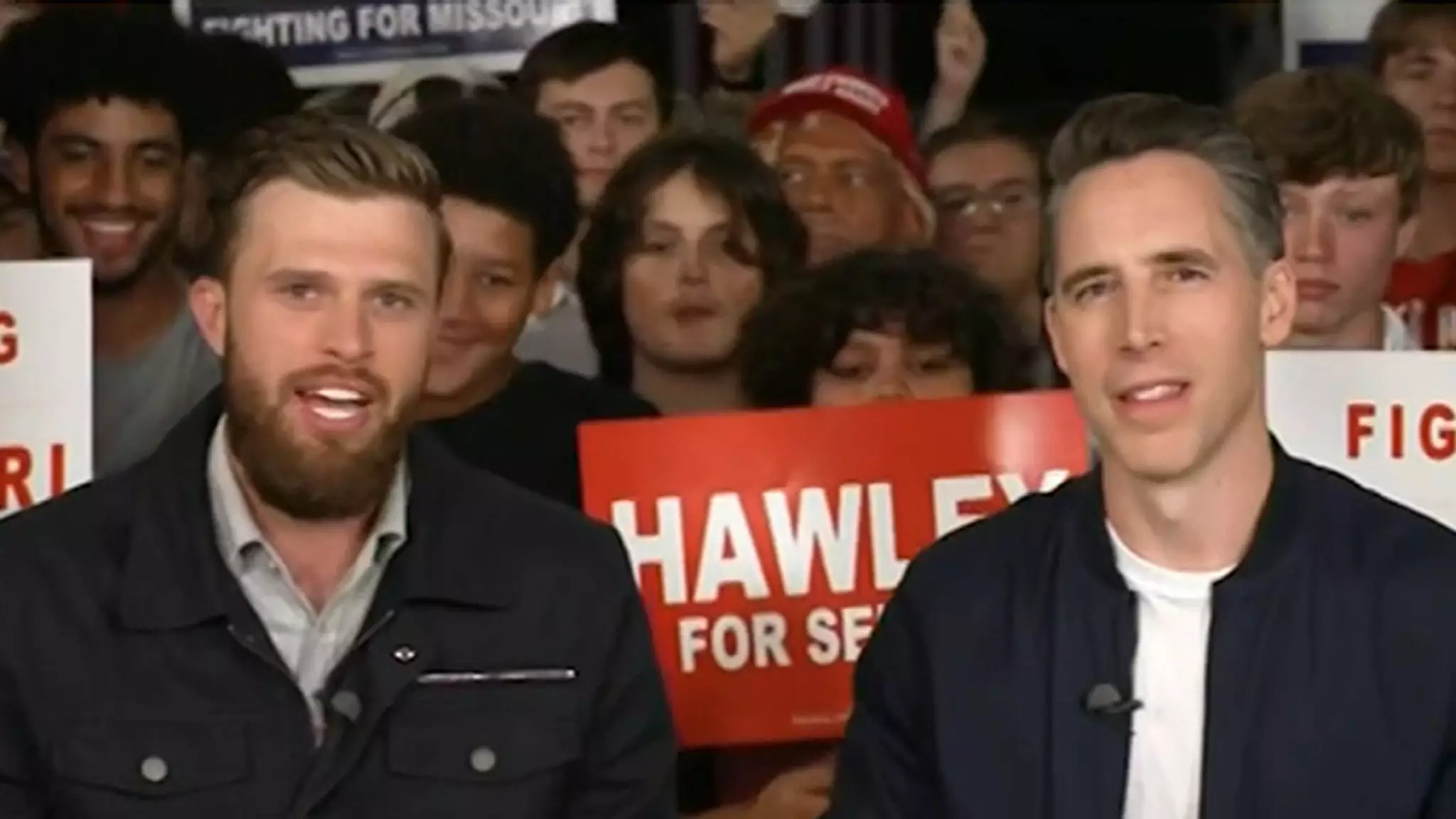Harrison Butker, the Kansas City Chiefs kicker renowned for his three Super Bowl victories, recently made headlines by openly endorsing Donald Trump as the “most pro-life president.” At a campaign event in Missouri for fellow Republican Senator Josh Hawley, Butker emphasized the importance of prioritizing life and defending the unborn. “The pro-life topic is the most crucial topic for me,” he stated during an interview on FOX News’ “The Ingraham Angle.” This declaration reveals a compelling personal conviction, deeply rooted in his religious beliefs.
At just 29 years old, Butker’s commitment to his values is remarkable, especially considering that many individuals in similar positions often choose to remain apolitical. His advocacy highlights a growing trend among athletes who leverage their platforms to engage in significant societal issues, particularly in a polarized political landscape.
Faith, Family, and Public Statements
Delving deeper into Butker’s opinions reveals that he believes in a direct correlation between faith and national values. He stated, “I think you have to vote for whoever is gonna be the most pro-life, and we have to be prayerful men that put God first.” This assertion points towards a worldview that sees governance as an extension of spiritual ethics—an approach that many might find controversial.
Moreover, Butker’s comments regarding his experience at Benedictine College, where his commencement speech attracted criticism, illustrate the complexities of making public statements that intertwine personal belief systems with broader societal implications. Some detractors labeled him a misogynist, which prompted Butker to clarify his intentions. “I was trying to speak life for so many women that have dedicated their life to being the homemaker,” he explained. This defense raises questions about how personal motivations can be misconstrued in the public eye, especially when they touch upon sensitive subjects like gender roles.
Political Affiliations Among NFL Community
Butker’s endorsement of Trump is not an isolated occurrence within the NFL universe. Brittany Mahomes, the wife of Chiefs quarterback Patrick Mahomes, appears to align with similar political sentiments, although the quarterback has not expressed his political stance publicly. Travis Kelce, another prominent Chiefs player, remains silent on political endorsements, even as his girlfriend, Taylor Swift, actively supported Democratic candidate Kamala Harris in the previous election cycle.
This phenomenon raises intriguing questions about the influence of politics on the sports community and vice versa. Athletes, especially those in high-profile positions, often face pressure to conform to public expectations while navigating their own beliefs. Butker’s boldness in expressing his political preferences not only affects his brand but also presents an example for other athletes considering public involvement in politics.
As the 2024 elections approach, Butker’s passionate statements reflect a growing trend where sports figures publicly engage with political discourse. This trend could significantly impact fan interactions, athlete endorsements, and the overall relationship between sports and politics. Regardless of the elections’ outcomes, Butker’s stance exemplifies how personal beliefs can shape public persona and narrative in unexpected ways. As NFL players continue to expand their roles beyond the field, the intersection of faith, politics, and sports is likely to evolve further, reflecting broader societal shifts.


Leave a Reply